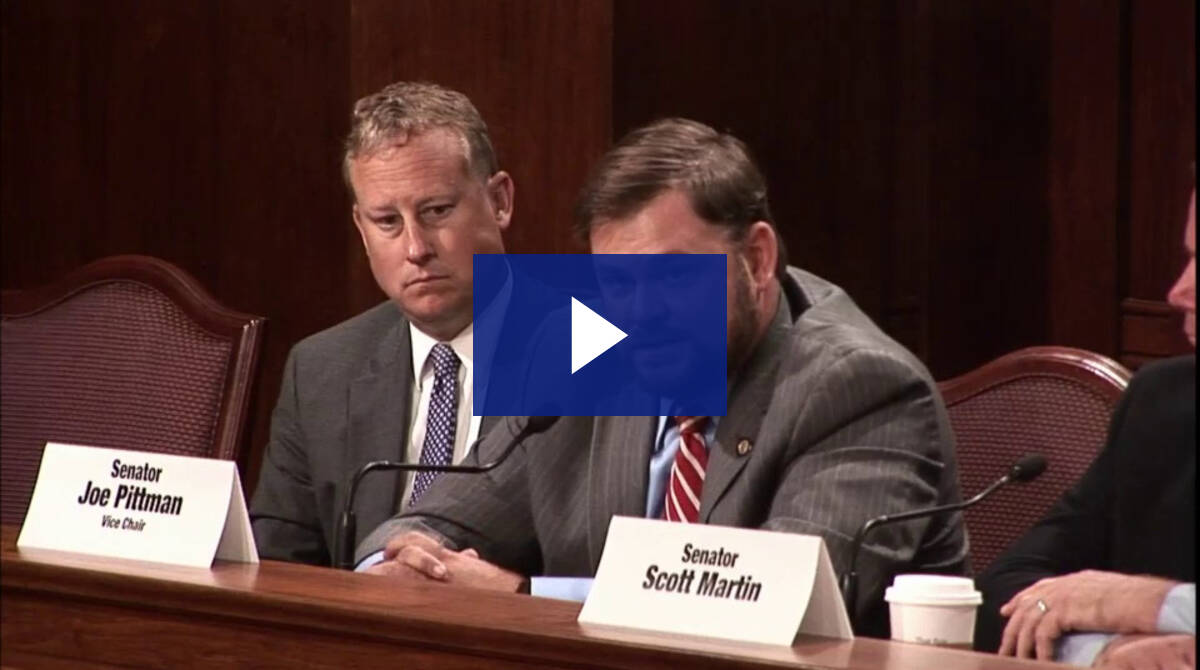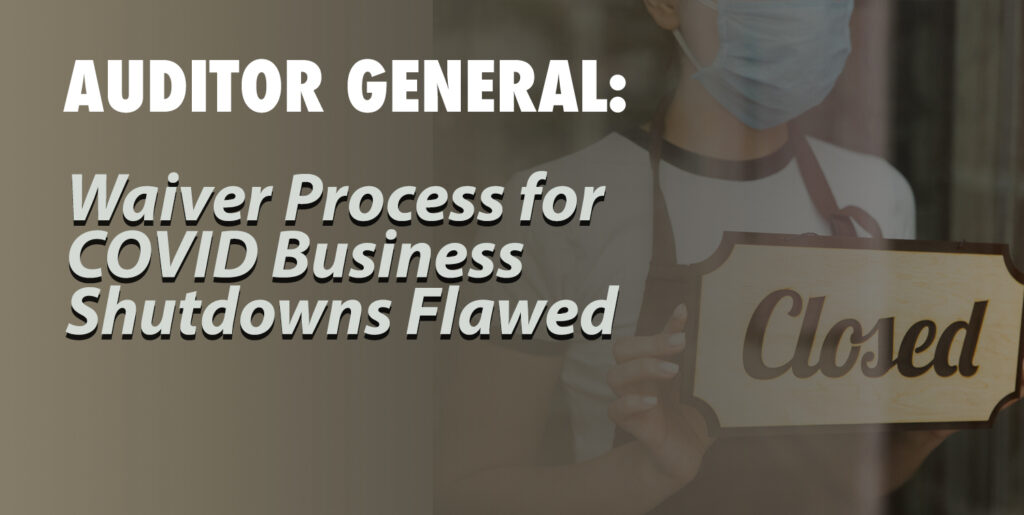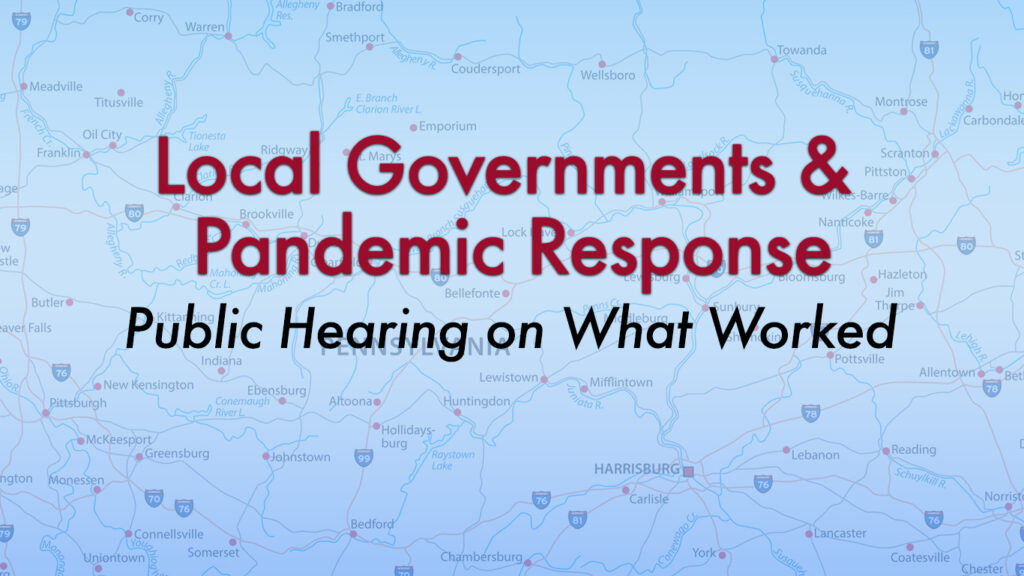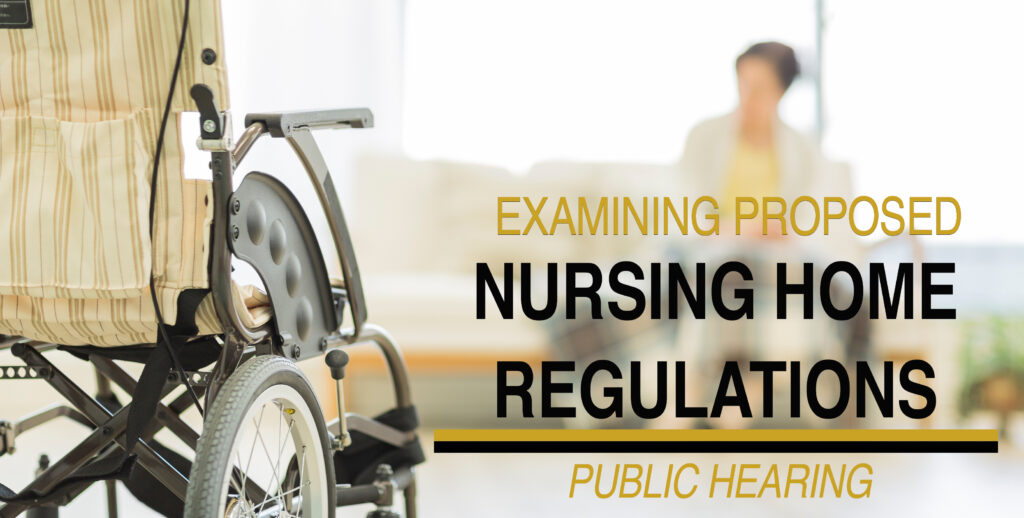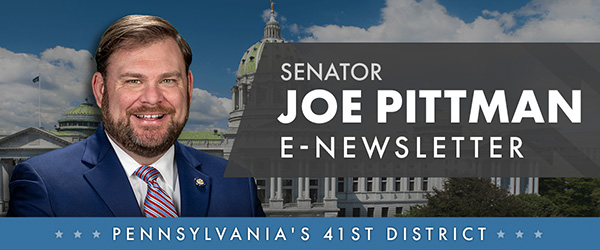
|
||||
Senate ERE Committee Disapproves RGGI RegulationThe Senate Environmental Resources & Energy Committee approved a concurrent resolution on Tuesday disapproving a regulation by the state Environmental Quality Board (EQB) to have Pennsylvania join the Regional Greenhouse Gas Initiative (RGGI). Prior to the vote, I chided the Democratic members of the committee for turning a deaf ear to the calls from organized labor against RGGI and for deriding efforts to derail the governor’s unilateral edict that Pennsylvania join the compact of otherwise non-energy producing states. Pennsylvania would be the only state to join without legislative approval. When the governor announced his unilateral decision to join RGGI in 2019, the carbon tax rate was $5.20 per ton of CO2. Since then, the RGGI tax rate has increased 79 percent to $9.30. Models produced for the state Department of Environmental Protection emphasized that the RGGI tax rate would not surpass $7 per CO2 ton until at least 2025. I have repeatedly stressed that the carbon tax would not only violate the state Constitution, which grants exclusive power to the legislative branch to levy taxes, but would also result in the closure of Pennsylvania’s coal-fired power plants and the loss of hundreds of family sustaining jobs. The resolution now goes to the full Senate for consideration. The Senate has either 10 legislative or 30 calendar days – whichever is longer – to consider the disapproval resolution. If approved, the resolution goes to the House chamber, which also has 10 legislative or 30 calendar days window to pass the resolution and present it to the governor. If the Governor vetoes the disapproval resolution, it will return to the Senate who may consider overriding the veto. Two-thirds of the Senate must support the resolution to override the veto. The measure then goes to the House where the same two-thirds vote is required. Even if a veto is not overridden, the process would still be far from complete. This will go to court because this clearly is a tax and it is clearly a policy decision beyond the scope of their (EQB) regulatory authority. The governor will be gone in 16 months and we may well be finding ourselves sitting here in a situation where we will be withdrawing from RGGI before it is ever implemented.” Click for audio of my comments. Click for video of the committee meeting. Auditor General Releases Audit Critical of Wolf Administration’s Business Closure Waiver Process
When Pennsylvanians voted in May to put limits on Gov. Wolf’s emergency powers, part of their concern was over his pandemic business closures and his administration’s handling of closure waivers. An audit by state Auditor General Tim DeFoor found voters’ concerns to be justified. The auditor general released a performance audit examining how the Department of Community and Economic Development handled the process to grant waivers to businesses seeking to stay open during the shutdown, stating: “This audit revealed a flawed process that provided inconsistent answers to business owners and caused confusion. While the pandemic certainly presented some unique challenges, the process was hastily assembled on the fly, unevenly administered and should be reformed before anything like it is ever used again.” A preliminary audit by the previous auditor general uncovered similar problems. The new audit also found that Gov. Wolf’s shutdown order was more restrictive than federal guidelines, resulting in more business closures. The General Assembly should review the recommended changes included in the audit to determine what needs to be done to prevent a repeat in any future emergencies. Hearing Explores Positive Experiences of Local Governments During COVID-19
The Senate and House Local Government committees held a joint hearing exploring the positives experienced by local government entities during the COVID-19 pandemic. Testifiers described the transition to virtual and hybrid meetings, technological advancements in conducting municipal business with the public and other government organizations and improved transparency. They also highlighted ways the pandemic led them to make regulatory changes, improve efficiency and modernize procedures. You can view hearing video and written testimony here. Committee Discusses Ways to Preserve Life-Saving Care Provided by Firefighters
The Senate Veterans Affairs & Emergency Preparedness Committee held a public hearing to listen to fire chiefs, firefighters and others about how to improve recruitment and retention of the next generation of volunteer firefighters across Pennsylvania. In addition to explaining the impact of funding challenges, testifiers highlighted the need for communities to work together in support of first responders to preserve critical access to life-saving care for all Pennsylvanians. In the 1970s, Pennsylvania boasted 300,000 volunteer firefighters. Today, that number is fewer than 40,000. To help bolster those ranks, the Senate this year passed Senate Bill 83, which would provide grants to establish fire training programs for students during the school year with the hope they will remain firefighters for years to come. You can view hearing video and written testimony here. Proposed New Nursing Home Regulations Examined by Senate Committees
The Senate Health & Human Services Committee and the Aging & Youth Committee held a joint hearing to examine new regulations for long-term care nursing facilities being proposed by the Wolf Administration. The committees brought together administration officials as well as industry experts and others to provide feedback on the proposed regulations, which the administration says is the first in a series of proposed changes that will be combined to create a final, comprehensive regulatory package. You can view hearing video and written testimony here. Scammers Continue to Exploit COVID-19
Since the start of the pandemic, fraudsters have been trying to exploit it for financial gain. The arrival of vaccines changed the nature of the scams but did not eliminate them. The U.S. Department of Health and Human Services says consumers should be on the lookout for these signs of vaccine scams:
Other scams have sought to steal stimulus money, while the FBI says con artists advertise fake COVID-19 antibody tests in hopes of harvesting personal information they can use in identity theft or health insurance scams. AARP has the latest information on pandemic-related scams. September is National Literacy Month
Children who learn good reading habits are more likely to develop a lifelong love of reading, which supports early writing and reading skills and builds their vocabulary. Here’s to exploring the world through reading during National Literacy Month and year round. |
||||
|
||||




Want to change how you receive these emails? 2025 © Senate of Pennsylvania | https://senatorpittman.com | Privacy Policy |
